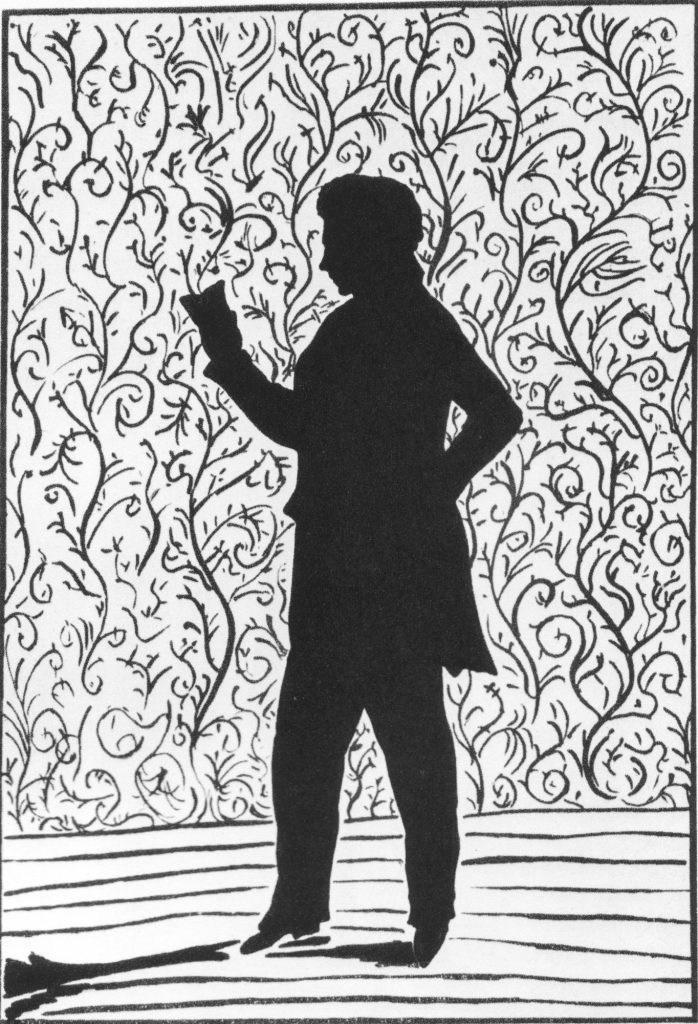“My ancestors fled to Spain and then Portugal, where they remained until the pestilence of the inquisition drove them to Africa.” So begins the brief family history that Isaac Harby, journalist, critic, playwright and Jewish religious reformer, inscribed in his family bible. “I find my grandfather, Isaac Harbie, about the middle of the 18th century, employed in the business of a lapidary at Fez in Morocco and in his barbarian majesty’s good confidence. Of this issue six children were born, the youngest of whom was Solomon, my father, born in London, 1762. Solomon Harby emigrated to America and remained three years at Jamaica from 1778 to 1781. He married Rebecca Moses at Charleston, South Carolina, in 1787. She was the daughter of Myer Moses, a rich and patriotic Israelite who assisted his country during the Revolutionary struggle.”
This assistance he speaks of concerns generous financing of the revolution, a point of great pride for the Moses family and for Isaac. In the North American Review in 1826, he would write, “My maternal grandfather contributed pecuniary aid to South Carolina, and particularly to Charleston, when besieged by the British. My father-in-law was a brave grenadier in the regular American army, and fought and bled for the liberty he lived to enjoy and to hand down to his children.” Rebecca’s half-brother, also named Myer, was elected to the South Carolina State Legislature in 1810. In addition to Isaac, Rebecca and Solomon had one other child, who bore in his name the patriotic enthusiasm of the earl national period, George Washington Harby, who married Mary Olivia Lucas.
In 1810 Isaac married Rachel Mordecai, daughter of Samuel and Catherine Andrews Mordecai. They raised their family in Charleston and had six children who survived infancy, including Solomon who became a lieutenant in the Navy.
Though he initially studied law, Isaac became a prominent journalist, later serving as editor of The Quiver, The Investigator, The City Gazette and The Charleston Mercury. For a period he ran a school on Edisto Island in South Carolina. Isaac gained some renown as a playwright, beginning with his first play, The Gordian Knot in 1807. His best-known dramatic work was Alberti, the premiere of which was attended by President Monroe in 1818. However, his literary reputation most heavily depended on his work as an essayist, his political commentaries and dramatic criticism. Isaac counted among his friends Thomas Jefferson and Sir Walter Scott.
In 1824 Isaac led a group of forty-seven congregants at Beth Elohim in Charleston in a petition to the congregation’s board, requesting greater use of English during services. When their demands were rejected, Isaac and his group founded the Reformed Society of Israelites for Promoting True Principles of Judaism According to Its Purity and Spirit. They began meeting in a separate location, wrote a new prayer book, introduced music into the service, and worshipped with heads uncovered. Isaac was a leader in the group, giving sermons and serving as president in 1827. On the first anniversary of the founding of the Reformed Society, Isaac published a pamphlet stating the goals and ideals of the group. It circulated widely, drawing significant criticism from member of Beth Elohim, though Thomas Jefferson wrote that he found it, Thomas Jefferson wrote to say that he found it “entirely reasonable,” even if he was “little acquainted with the liturgy of the Jews or their mode of worship.” Members of the Reformed Society often found themselves ostracized by other members of Charleston’s Jewish community. After the sudden death of his wife in 1827, Isaac moved to New York, the society not lasting long after his departure.
Before he died at the end of 1828, Isaac spent his final months in New York, where he established a school and wrote frequently for the Evening Post.
